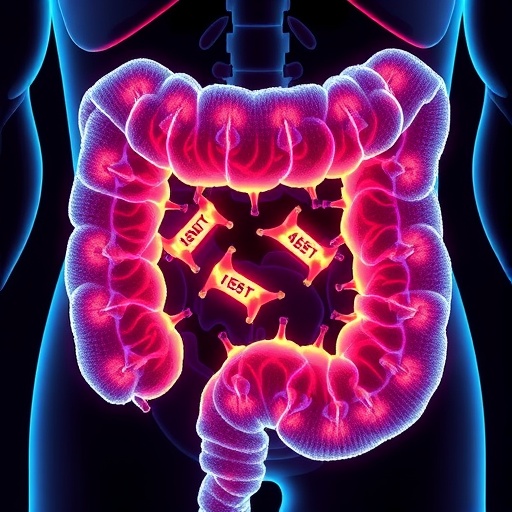In an unexpected twist in the realm of cancer research, a notable study has recently been retracted. The research, conducted by Pan, D., Hao, J., and Wu, T., among others, originally intended to enhance our understanding of the role of sodium butyrate in colon cancer cell proliferation. As a potential therapeutic agent, sodium butyrate was previously explored for its promising properties, offering hope to patients battling this devastating illness. This retraction raises crucial questions in the scientific community regarding the reproducibility and reliability of data in some areas of cancer research.
Sodium butyrate, a short-chain fatty acid derived from dietary fiber fermentation, has been identified as a significant player in various biological processes, including modulation of gene expression. The initial study proposed that sodium butyrate could inhibit the proliferation of colon cancer cells through the modulation of a cellular mechanism involving microRNA, specifically miR-183, and its target gene, DNAJB4. This hypothesis was pivotal, as it suggested a novel therapeutic pathway to target malignant growth in colon cancer.
However, the recent retraction of this study has sparked an intense debate among researchers and oncologists alike. When it comes to cancer, scientific data faces rigorous scrutiny, and reproducibility remains a cornerstone of establishing credible findings. Concerns surrounding methodological flaws or inconsistencies in data integrity have led to calls for transparency and reform in research practices, especially in fields that wield significant implications for public health and clinical applications.
The retraction occurred after a thorough peer review process, which indicated that the findings, as reported, could not be replicated in subsequent studies. This has highlighted the necessity of validation in cancer research. Replicating findings is essential in confirming the efficacy of potential treatments, particularly when they are based on intricate biological interactions such as those between miRNAs and their targets. The miR-183 and DNAJB4 interaction is particularly intriguing, as microRNAs are known for their profound influence on gene regulation and cancer pathways.
For instance, miR-183 has been associated with oncogenic properties in various cancers, promoting tumor growth and metastasis. Conversely, DNAJB4, belonging to the heat shock protein family, has protective roles in various cellular processes. The proposed pathway involving sodium butyrate, miR-183, and DNAJB4 could have opened new avenues for therapeutic interventions in colon cancer. Nonetheless, the scientific community must now redirect its focus toward other avenues of research that may yield reliable results.
As researchers grapple with the implications of this retraction, it serves as a reminder of the complexities inherent in cancer biology. Both established and emerging theories must continuously undergo rigorous testing. This situation also accentuates the necessity to foster an environment where scientists can communicate their findings transparently, even when those findings may not yield the anticipated results.
Funding agencies and academic institutions are under increasing pressure to ensure that research is conducted ethically and sustainably. The necessity for stringent oversight mechanisms, coupled with a supportive culture that encourages reporting of both positive and negative results, is more urgent than ever. In this environment, true innovation can thrive, and researchers will be better equipped to tackle daunting challenges like cancer.
Additionally, the retraction emphasizes the need for interdisciplinary collaboration in cancer research. As our understanding of cancer evolves, it’s essential to draw upon expertise from various domains, including genomics, immunology, bioinformatics, and molecular biology. Interdisciplinary collaboration facilitates the cross-pollination of ideas and strategies, potentially leading to breakthroughs that can significantly advance our knowledge and treatment of cancer.
Despite this setback, the exploration of metabolic therapies such as sodium butyrate remains a pertinent field of study. Research continues to explore the role of diet and metabolism in cancer progression, opening discussions around how lifestyle choices may influence oncogenic pathways. The evolving field of personalized medicine lends itself to considering how individual metabolic profiles may also affect treatment responses in cancer patients.
In conclusion, the retraction of the study by Pan et al. is a sobering reminder of the inherent complexities and challenges within cancer research. As the scientific community reflects on these findings, it must remain committed to the pursuit of truth, careful validation of results, and a collaborative approach to overcoming the barriers posed by malignant diseases like colon cancer. The ultimate goal should always be to bring forth reliable therapies that improve patient outcomes and enhance the quality of life for those affected by such life-altering conditions.
This turn of events lays the groundwork for renewed vigilance in the scientific process and calls to action for researchers everywhere to commit to integrity and robustness to safeguard the future of oncology research.
Subject of Research:
Article Title:
Article References:
Pan, D., Hao, J., Wu, T. et al. Retraction Note: Sodium Butyrate Inhibits the Malignant Proliferation of Colon Cancer Cells via the miR-183/DNAJB4 Axis.
Biochem Genet (2025). https://doi.org/10.1007/s10528-025-11258-1
Image Credits: AI Generated
DOI:
Keywords:




